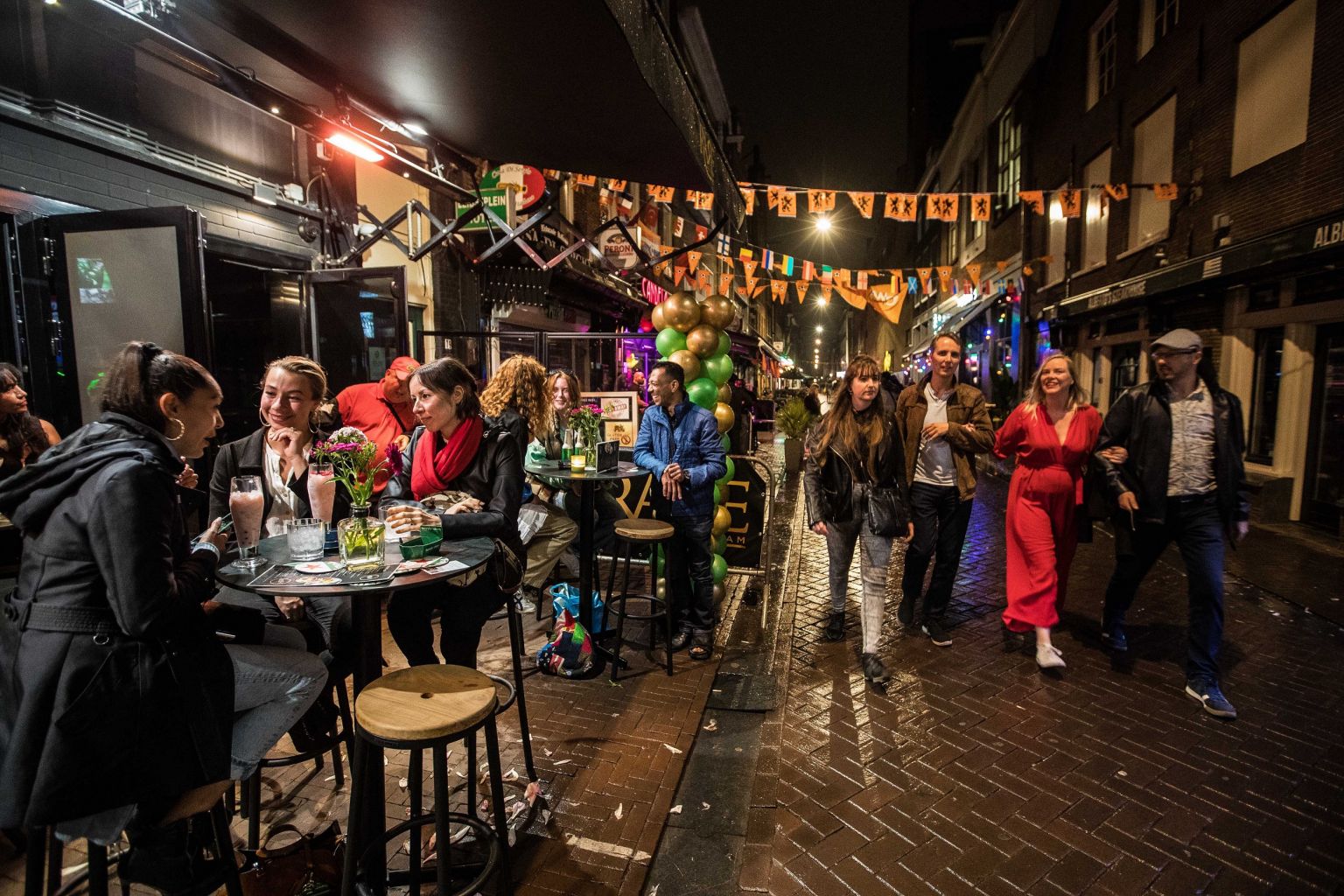Dutch reimpose some curbs after Covid-19 spike
Sign up now: Get ST's newsletters delivered to your inbox

People enjoy the nightlife of Amsterdam in June 2021, after coronavirus restrictions were lifted.
PHOTO: EPA-EFE
THE HAGUE (AFP) - Dutch Prime Minister Mark Rutte announced a number of measures on Friday (July 9) to curb a rapid spike in coronavirus infections in the country, including closing discos and nightclubs and curbing restaurant hours.
Infections rose sevenfold in the lowlands country in one week, with 7,000 new cases reported on Friday, Rutte said, forcing government to walk back an easing of restrictions.
"There is a dark cloud in front of the sun. At the moment infection rates are rocketing, mainly because of the highly-infectuous Delta variant," Rutte told a news conference.
"If we don't do something the tempo of infections are simply going to rise. It's clear that we need to nip the rapid spread of the virus in the bud," he said.
The government, therefore, has decided to order the closure of all discos and nightclubs and the closure of restaurants at midnight.
All visitors to restaurants and cafes must now adhere to the 1.5 metre social distancing rule, Rutte said, adding that no live music or entertainment would be allowed.
Events lasting longer than 24 hours have been put on ice, the top Dutch official added.
Measures will start at 6am on Saturday and last until at least Aug 13.
"Two weeks ago all signals were on green," Dutch Health Minister Hugo de Jonge told journalists.
"But now there's a reason to intervene. This is a result of the rapid spread of the Delta variant in Europe and the Netherlands," he said.
"This is unprecedented. The previous week we sat at around 500 new cases per day. Today there are 7,000 new infections," De Jonge said.
But the new measures did not mean the Netherlands would return to a lockdown or curfew as in previous months, or a compulsory rule to wear face masks indoors.
Rutte however urged people to "stick to the basic rules - keeping social distance and washing hands".
"If we do that, we can yet make it a beautiful summer," he said.
The nation of 17 million has recorded more than 1.7 million coronavirus cases and over 17,700 deaths during the pandemic.
Around 80 per cent of the population have received at least one vaccine jab, while about 50 per cent received two, De Jonge said.
Most of the infections were among younger people, the health minister added.


